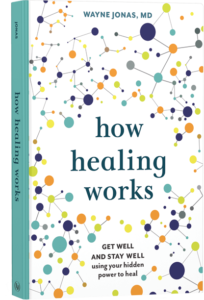Perfection is the enemy of healing.
Gratitude is the enemy of despair.
I choose gratitude as much as I can and double down on it when the world or my mind says I should choose despair.
There are many things I don’t like. Here is a partial list: wars, a dysfunctional government, cancer that won’t go away, poverty, bigotry, pain, hunger, and homelessness. As I write this essay, I am isolating with COVID-19 for the second time, despite vaccinations and preventative measures, so it would be easy to go on and on about things I don’t like.
There are many things I don’t do that I should. I don’t exercise like Peter Attia wants me to. I don’t eat like Dean Ornish wants me to. I don’t meditate like Jon Kabat-Zinn wants me to. And I don’t renounce everything like Richard Rohr wants me to. My efforts in these areas are not perfect, but they count for something.
Humans are not perfect, life is not perfect, we (and it) never will be perfect, and most importantly, we (and it) shouldn’t be perfect. Winston Churchill said “perfection is the enemy of progress.” Perfection is also the enemy of healing, which only occurs when little imperfections nudge us in the right direction, helping us become more whole.
In the 1997 film “As Good as it Gets,” Jack Nicholson plays a character with obsessive compulsive disorder who struggles to live and be accepted in the world as he is. Whatever flows into his mind comes out immediately in his behavior and social interactions. Most of it is negative. Needless to say, constantly creating situations and feelings that people don’t like is challenging to live with.
But that’s as good as it gets. Well, at first, it may seem as though he’s not like most people. But the reality is, Nicholson’s character is exactly like most people, in the sense that we are constantly being drawn into and battered about by our own negative thoughts and feelings. The only difference between Nicholson’s character and us is that most of us don’t act those negative thoughts and feelings out immediately. Instead, we keep them in and let them batter us internally. Since most of those thoughts are about things we’re afraid of or don’t like, we too can get caught in a world of worry and despair.
Unless, of course, we can step back from those thoughts and cultivate what we do want to be battered by – I suggest thoughts of gratitude and joy.
There are many things I’m thankful for and that bring me joy: my family (especially the innocent and beaming faces of my grandchildren), the fact that I have a comfortable home and good food and medical care, the 15 species of birds that regularly come to my birdfeeder in the backyard, that I have a backyard, that I have good friends and neighbors with whom to visit, that I have a job that helps people understand and attain healing and wellbeing, that my wife and friends and family love exploring ideas and places in the world, and that I have opportunities to indulge in an excellent meal out and an occasional glass of wine. I’m grateful my symptoms of COVID-19 are not severe, probably thanks to my general health and vaccinations. I am grateful to science.
I realize that there are many people who don’t have these opportunities, but many of these opportunities most people do have. What we all have is the ability to step back and think about what brings us joy and gratitude. Research, and my own experience, show that if we actually do that – regularly cultivate thoughts of gratitude on the simple things we do have, starting with life – we can get closer and closer to as good as it gets, even in the midst of the slings and arrows of despair.
As we begin 2024, my main recommendation for everyone is to cultivate gratitude. Every evening, start by writing down five things you’re thankful for in a journal. Then, spend a couple minutes each morning cultivating distance from any negative thoughts that might start your day. Substitute a few thoughts of things you look forward to during the day instead of dread. If you are feeling overwhelmed or stressed, pause between activities and take a breath, allowing that distance from any worrying thoughts to fade and gratitude to return.
Practicing this process gives us a type of resilience and mental fitness that, just like physical fitness, grows in strength the more we use it. And unlike other New Year’s resolutions, this is a practice you can fall off of and return to moment by moment, especially in the midst of imperfection.

Take Your Health Into Your Own Hands
Drawing on 40 years of research and patient care, Dr. Wayne Jonas explains how 80 percent of healing occurs organically and how to activate the healing process.

